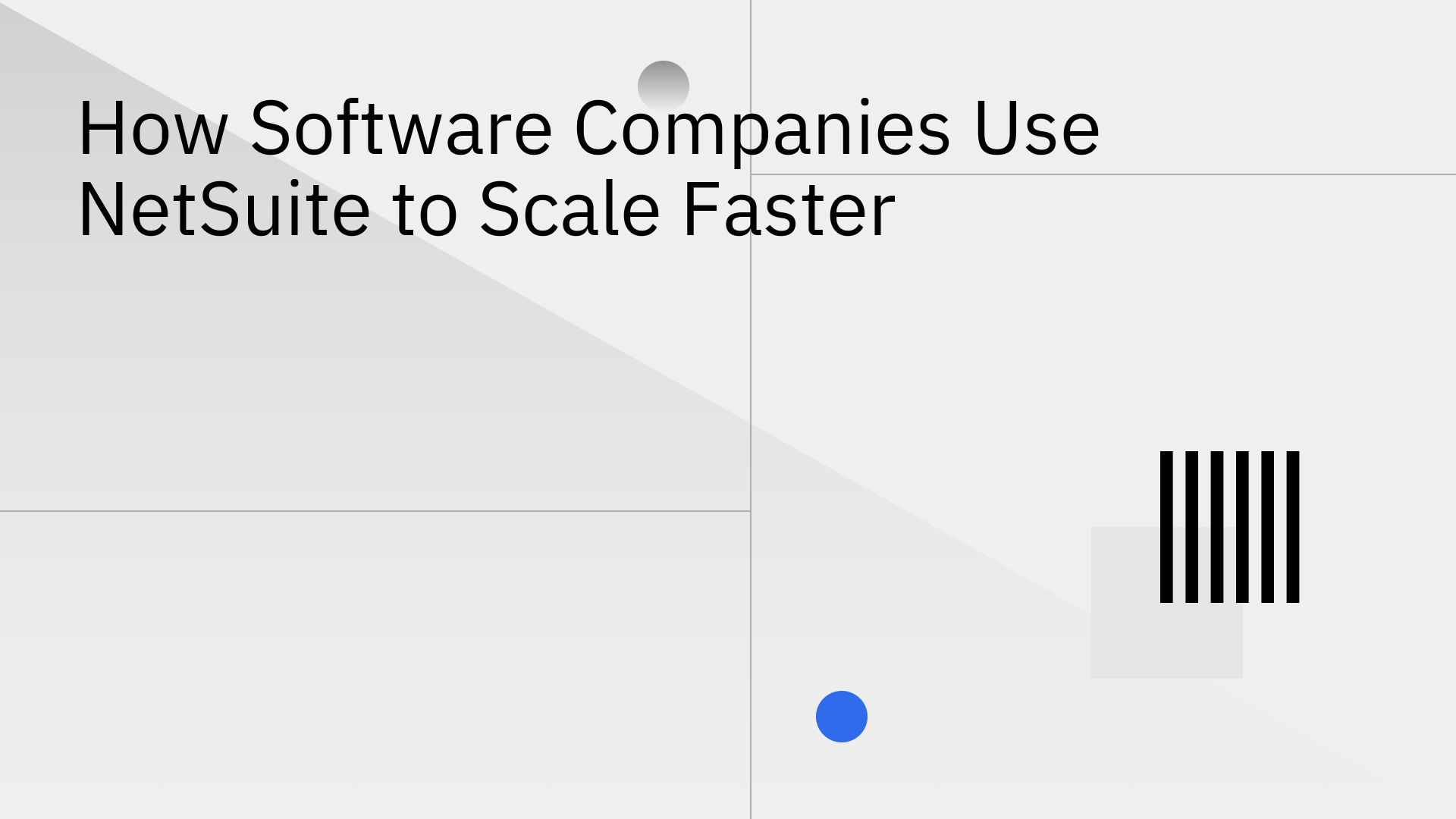
Software companies face a unique challenge: scaling fast without losing operational control. From subscription billing to revenue recognition, the complexity grows quickly as customer counts and financial obligations increase. That’s where NetSuite for software companies becomes a game-changer. By unifying sales, finance, operations, and compliance in one ERP system, NetSuite enables SaaS and software businesses to move faster, scale securely, and remain investor-ready.
The lead-to-cash cycle is the heartbeat of a SaaS company. Yet, many software firms still run this process with siloed systems — CRM in one place, billing in another, accounting in spreadsheets. The result? Slow quotes, missed renewals, and errors that frustrate both sales teams and customers.
NetSuite for software companies centralizes this process, ensuring leads flow smoothly into quotes, contracts, billing, and collections — without manual intervention.
Compliance with ASC 606 isn’t optional for software companies with subscription billing models. Manual recognition and spreadsheets often break under pressure. NetSuite automates ASC 606-compliant revenue recognition, ensuring accuracy and audit-ready reporting that satisfies both regulators and investors.
In high-growth SaaS, waiting weeks for reports is not an option. NetSuite provides real-time dashboards across cash flow, churn, ARR, and renewals — metrics that CEOs, CFOs, and investors depend on.
Automation is key to scaling without ballooning headcount. NetSuite automates billing, reporting, and compliance tasks, freeing teams to focus on growth. Processes like order-to-cash (O2C) and record-to-report (R2R) are streamlined end-to-end.
As SaaS companies grow, they attract more outside scrutiny. NetSuite helps software companies get IPO-ready by standardizing processes, providing SOX compliance tools, and ensuring governance that accelerates due diligence.
With NetSuite, subscription billing models — whether usage-based, tiered, or hybrid — are managed automatically. This eliminates the need for multiple tools while ensuring customers are billed correctly every time.
NetSuite unifies data across finance, support, and product usage. Customer success teams gain full visibility into renewals, upsells, and churn risks.
Growth in software often means acquisitions or divestitures. NetSuite’s flexible architecture enables quick integration of new entities, helping leadership maintain control while expanding rapidly.
Software companies succeed when ERP implementation is fast and low-risk. NetSuite’s SuiteSuccess framework, combined with agile practices, allows software companies to deploy pre-configured industry best practices quickly while adapting to their specific needs.
NetSuite works best when integrated with CRM, CPQ, and product databases. API-first design ensures software firms can connect their entire ecosystem, avoiding data silos and duplication.
For SaaS and software companies, NetSuite for software companies is more than ERP, it’s a foundation for operational scalability. It unifies revenue recognition, billing, compliance, and reporting, enabling leaders to focus on growth rather than firefighting.
The biggest mistake software companies make is waiting too long to unify their operations. By adopting NetSuite early, high-growth firms can streamline back-office functions, impress investors with accurate reporting, and build confidence in their ability to scale.
And with platforms like Stacksync, businesses can take NetSuite even further. Stacksync connects NetSuite bi-directionally with CRMs, ERPs, product databases, and SaaS apps, ensuring real-time data consistency across every system. This combination gives software companies the agility to scale faster, operate smarter, and maintain investor-ready transparency at every stage of growth.